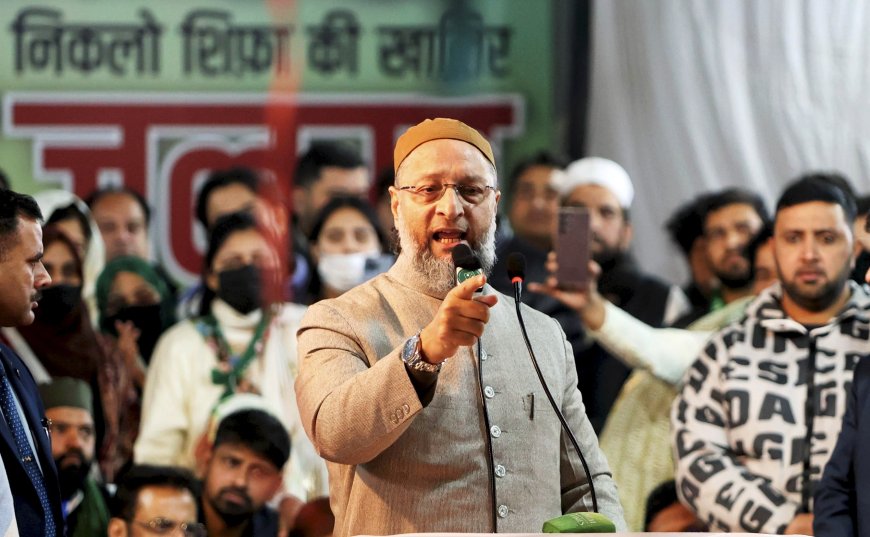Zero Wins, Big Impact: How Owaisi Factor Played Out In Delhi Election
If the failure of AAP and the Congress to join hands for the Delhi Assembly election helped the BJP score a decisive victory, a Hyderabad factor, too, made its presence felt in the capital contest.

Zero Wins, Big Impact: How Owaisi Factor Played Out In Delhi Election
News by dharmyuddh.com
Introduction to the Owaisi Factor
The Delhi elections stirred quite a buzz this year, bringing many political players into the spotlight, notably Asaduddin Owaisi and his party, AIMIM (All India Majlis-e-Ittehad-ul-Muslimeen). Despite not securing any wins, the presence of Owaisi's factor has been analyzed for its significant influence on the dynamics of the elections. This article delves into how the Owaisi factor not only affected voters but also shifted traditional alliances and voting patterns across Delhi.
The Significance of Owaisi's Campaign
Owaisi's campaign, although leading to zero seats, prompted conversations regarding minority rights and issues that resonate deeply within the Muslim communities. His focus on minority representation and social justice appealed to a segment of voters that felt overlooked by mainstream political parties. This led to an interesting scenario where his rallies attracted considerable attention, demonstrating his fundraising and campaigning skills despite the ultimate electoral outcome.
Shifts in Voter Dynamics
As Owaisi campaigned aggressively, various scenarios played out. Voters began to question their loyalty to established parties, leaning instead toward new voices like Owaisi's. This shift in dynamics affected the overall strategies of larger parties, prompting them to reassess their outreach efforts within minority communities. Consequently, the impact of Owaisi’s presence stretched beyond mere numbers, as he catalyzed an essential dialogue on Muslim representation in Indian politics.
Understanding the Electoral Impact
Although Owaisi's party did not secure any seats, his impact is evident in the electoral outcomes of other parties. Some analysts have suggested that his strong campaigning led to diluting votes that may have traditionally gone to existing parties like the Congress. This can imply that while he may not have won districts, he molded the election's competitive landscape significantly.
Conclusion
In summary, the implications of the Owaisi factor in the Delhi elections extend beyond seat counts. It sparks discussions about identity politics, minority representation, and the potential shifts in future electorates. Voter sentiments influenced by Owaisi's campaign highlight a more extensive narrative concerning the socio-political landscape of Delhi and India as a whole. As the political fabric of the nation continues to evolve, it remains crucial to observe how the dialogues initiated by leaders like Owaisi shape the next electoral battles.
For further updates and insights into Indian politics, visit dharmyuddh.com. Keywords: Owaisi impact Delhi election analysis, AIMIM performance Delhi elections, minority vote 2023 Delhi, how Owaisi influenced elections, Delhi election political dynamics, significance of Owaisi in Delhi, voter behavior 2023 election, Owaisi campaign effects Delhi, zero wins big impact, Asaduddin Owaisi Delhi elections.







